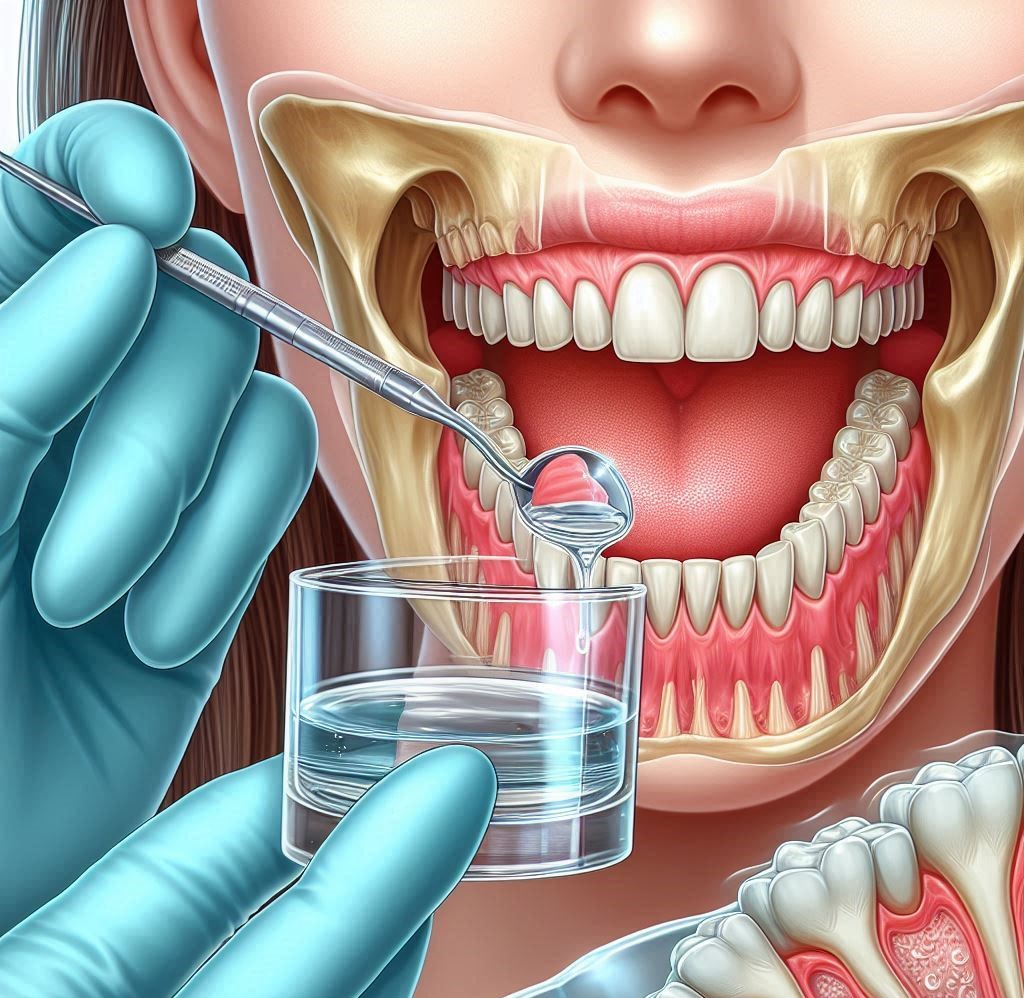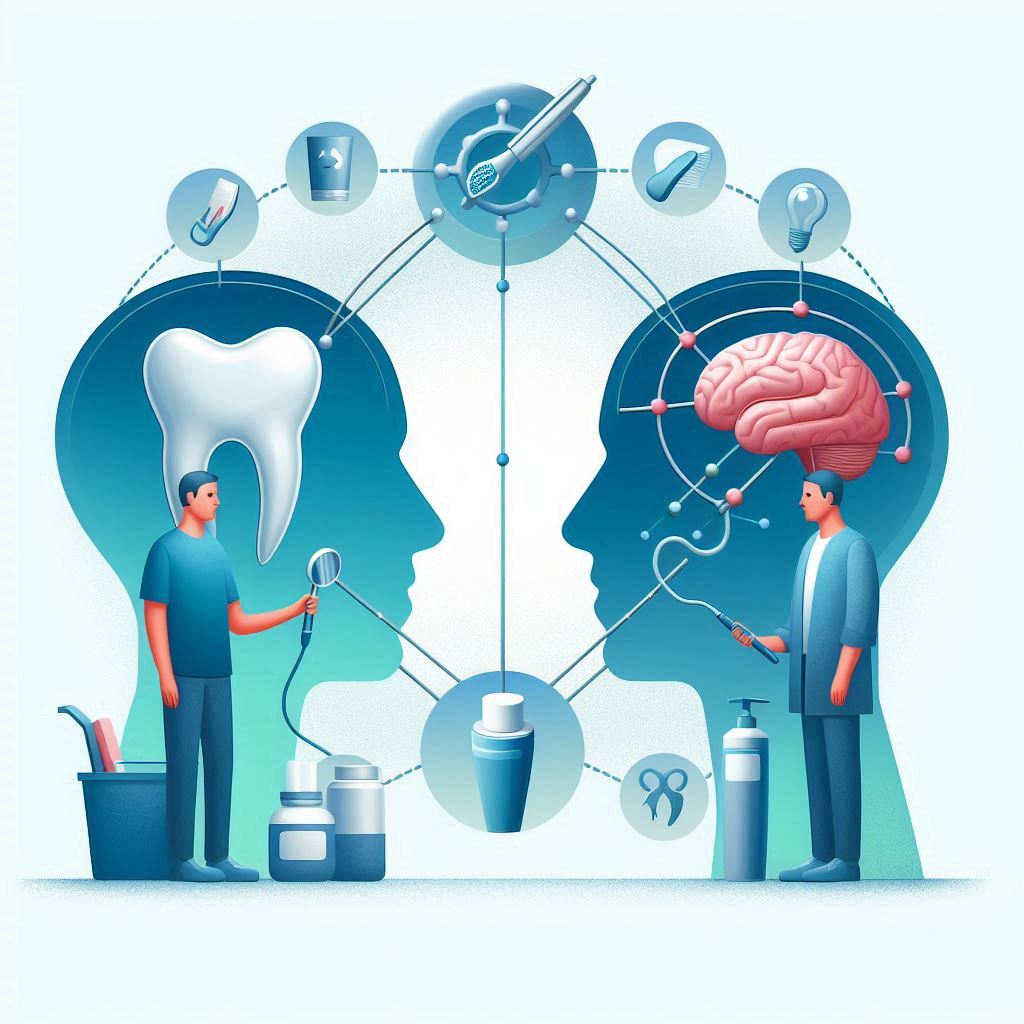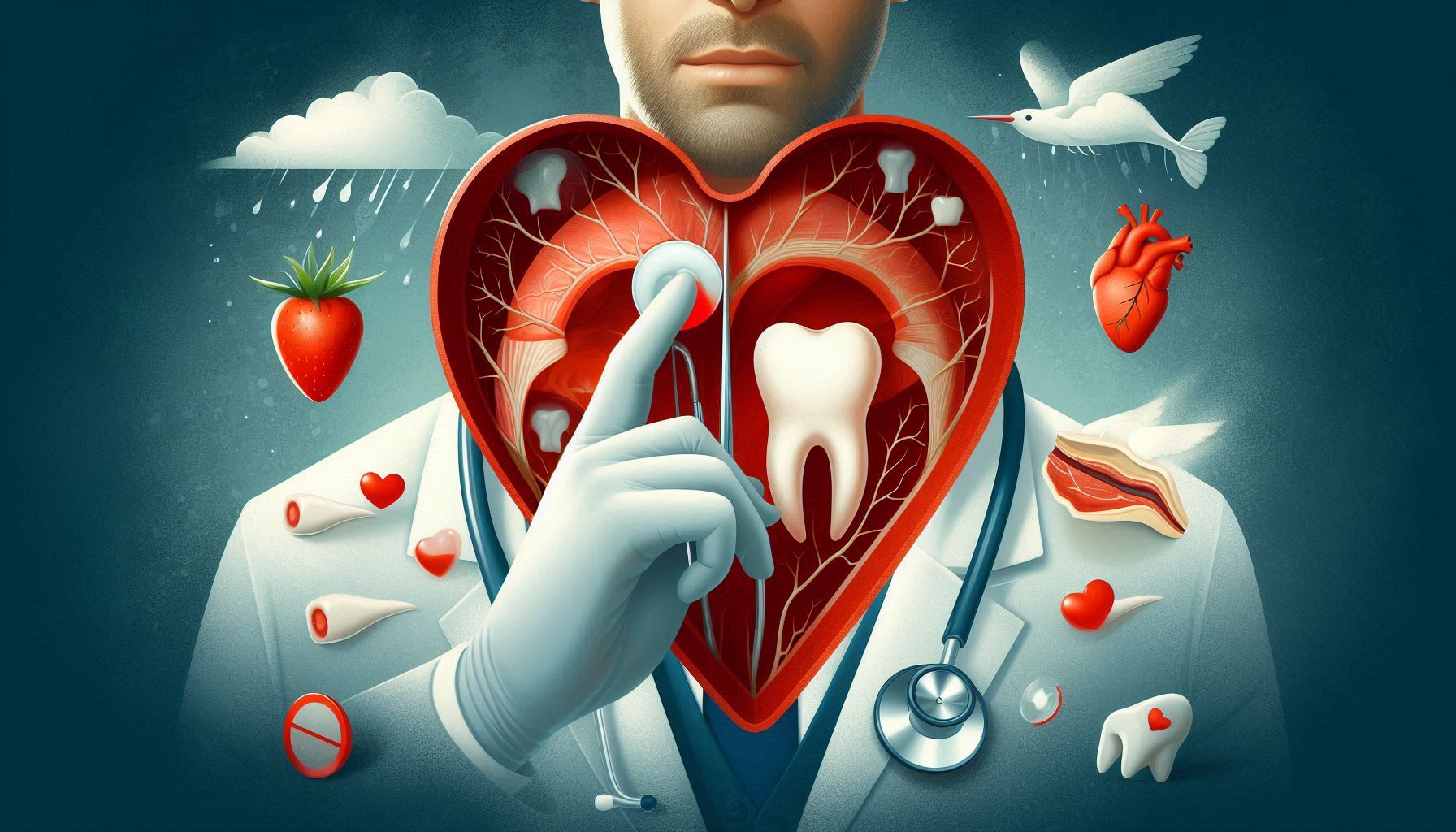The human body is a finely tuned system where each part is designed to work in harmony. One critical component is the mouth and jaw, which not only enable us to chew and speak but also house some of the most important structures in the body. The teeth, gums, and jawbones must function optimally to support overall health. However, when abnormal bone growth occurs in the mouth, it can disrupt these processes, leading to discomfort, misalignment, or aesthetic concerns.
Abnormal bone growth in the mouth refers to the formation of bony tissues in places where they are not typically found. These growths, which may seem benign at first, can have a significant impact on your dental and overall health if not addressed early. Conditions like exostosis, torus palatinus, torus mandibularis, and osteomas are examples of such growths. While some of these conditions are largely harmless and may require no intervention, others can cause problems such as restricted movement, difficulty chewing, speech issues, and even pain in the affected areas.
The good news is that abnormal bone growth in the mouth is largely preventable. With proper knowledge, early detection, and healthy lifestyle choices, you can reduce the risk of these conditions. In this article, we’ll dive into the causes of abnormal bone growth, risk factors, and most importantly, preventive measures you can take to ensure your bones and teeth remain healthy throughout your life.
What is Abnormal Bone Growth in the Mouth?
To understand how to prevent abnormal bone growth in the mouth, it’s essential to first grasp what abnormal bone growth actually is. The term refers to the formation of bone tissue in areas where it is not usually found, which can lead to bony growths or lumps in various parts of the mouth.
Common Types of Abnormal Bone Growths
- Exostosis: Exostosis refers to the growth of bone on the outer surface of the jaw, typically in response to pressure or irritation. This condition is often seen as small, painless bumps on the jaw and may occur on either the upper (maxilla) or lower jaw (mandible). Exostosis is often benign and can remain stable for years without causing issues, though in some cases, it may interfere with chewing or speaking.
- Torus Palatinus: Torus palatinus is a bony growth that forms on the roof of the mouth (palate). It is a common condition that appears as a hard, round, or lobulated lump. While generally asymptomatic, large torus palatinus growths can interfere with speaking, eating, or even the fitting of dentures. The exact cause of torus palatinus is not well understood, but genetics is believed to play a significant role.
- Torus Mandibularis: Similar to torus palatinus, torus mandibularis is a bony growth that forms on the inner surface of the lower jaw, usually near the premolar area. These growths are generally painless and asymptomatic but may cause discomfort if they become large enough to interfere with the tongue or the fitting of dentures.
- Osteoma: An osteoma is a benign tumor made of bone tissue that can form within the jaw or around the teeth. While osteomas are rare, they can cause issues if they grow large enough to interfere with oral functions or cause pressure on adjacent structures. Surgical removal may be required if the growth affects the alignment of the teeth or causes pain.
- Cysts and Benign Bone Growths: While not strictly “bone growths” in the traditional sense, certain cysts in the mouth (such as odontogenic cysts) can result in abnormal changes to the surrounding bone. These growths are typically associated with tooth development and may cause bone expansion or resorption if left untreated.
Causes of Abnormal Bone Growth in the Mouth
Abnormal bone growth in the mouth can be attributed to a variety of factors. Some of these factors are genetic, while others are related to lifestyle, trauma, and medical conditions. Understanding the underlying causes is crucial for preventing abnormal bone growth, as it can help identify which factors are modifiable and which are not.
Genetics and Family History
Genetics is perhaps the most significant factor in abnormal bone growth in the mouth. Certain conditions, like torus palatinus and torus mandibularis, tend to run in families. If a parent or sibling has one of these conditions, you may have an increased risk of developing it as well. The genetic predisposition to developing these growths is not fully understood, but researchers believe that certain genetic markers may influence the development of abnormal bone tissue in the oral cavity.
Age and Hormonal Changes
Abnormal bone growth can occur at different stages of life. For example, torus palatinus and torus mandibularis typically begin to form during adolescence and may continue to grow into adulthood. Hormonal changes during puberty can lead to increased bone remodeling and growth. Additionally, certain age-related changes, such as the loss of bone density in older adults, can trigger abnormal growth in response to weakened bone structures.
Trauma and Injury to the Jaw
Physical trauma to the jaw can stimulate the formation of excess bone growth as the body attempts to heal. This is a process called callus formation, where the body creates a bone-like material to heal a fracture or injury. While this is generally part of the healing process, excessive or abnormal callus formation can lead to bony growths that do not properly integrate into the surrounding bone, resulting in abnormal protrusions or lumps.
Bruxism (Teeth Grinding)
Teeth grinding, or bruxism, is another common cause of abnormal bone growth in the mouth. Bruxism exerts significant pressure on the jaw and teeth, which can lead to the formation of bone growths over time. This is especially true if grinding occurs frequently or with significant force. Bruxism-related bone growth is typically seen as exostosis or bony enlargements on the jaw, which may become painful or cause difficulty with chewing or speaking.
Chronic Inflammation or Infection
Chronic infections in the mouth can also contribute to abnormal bone growth. Periodontal disease, for example, can lead to inflammation of the gums and a subsequent loss of bone tissue in the jaw. In some cases, the body responds to this loss by overproducing bone tissue, which may result in the development of abnormal growths. Other infections, such as abscesses or chronic dental infections, may also lead to bone remodeling and irregularities.
Medical Conditions
Certain systemic medical conditions can increase the risk of abnormal bone growth in the mouth. For example:
- Paget’s disease is a condition where the normal process of bone remodeling is disrupted, leading to the formation of abnormal, dense bones. This can affect the jaw and facial bones.
- Osteogenesis imperfecta is a genetic disorder that results in brittle bones and can cause abnormal bone growth in various parts of the body, including the jaw.
- Hyperparathyroidism, a condition involving the overproduction of parathyroid hormone, can lead to an increase in bone resorption and, in some cases, the development of abnormal bone formations.
Medications and Environmental Factors
Some medications that affect bone metabolism can contribute to abnormal bone growth in the mouth. For example, long-term use of bisphosphonates (commonly used to treat osteoporosis) has been associated with abnormal bone growth or tissue necrosis in the jawbone, a condition known as osteonecrosis of the jaw. Similarly, steroids and other medications that affect bone density and remodeling may increase the risk of abnormal bone growth.
Environmental factors, such as exposure to certain chemicals or toxins, may also play a role in abnormal bone formation, though this is less well-understood.
How to Prevent Abnormal Bone Growth in the Mouth
Preventing abnormal bone growth in the mouth is largely about reducing risk factors and adopting healthy lifestyle choices that promote oral health. The following tips can help you minimize the likelihood of developing abnormal bone growth and maintain a healthy, functional mouth.
Maintain Good Oral Hygiene
Good oral hygiene is the cornerstone of preventing many oral health issues, including abnormal bone growth. Proper brushing, flossing, and regular dental check-ups can help prevent infections, gum disease, and other conditions that may contribute to abnormal bone growth.
- Brush your teeth twice a day using fluoride toothpaste to remove plaque and prevent gum disease.
- Floss daily to clean between your teeth and gums where your toothbrush can’t reach. This will help prevent gingivitis, periodontitis, and infections that could affect the jawbone.
- Use a soft-bristled toothbrush to avoid irritating your gums or damaging your tooth enamel.
- Visit your dentist regularly for cleanings and check-ups to detect any signs of gum disease or abnormal bone changes early.
Wear a Mouthguard if You Grind Your Teeth
If you grind your teeth at night or during stressful situations (a condition known as bruxism), you may be at increased risk of abnormal bone growth in your mouth. Wearing a night guard or bite guard can help protect your teeth, jaw, and bones from excessive pressure. Your dentist can custom-make a mouthguard that fits your teeth properly and reduces the impact of grinding.
Maintain a Healthy Diet for Bone Health
Your diet plays a significant role in your bone health. Proper nutrition can help prevent abnormal bone growth and support overall oral health. Focus on a balanced diet that includes:
- Calcium-rich foods like dairy products (milk, yogurt, cheese) or calcium-fortified non-dairy alternatives.
- Vitamin D from sunlight, fatty fish (salmon, mackerel), and fortified foods to help your body absorb calcium.
- Magnesium from leafy greens, nuts, seeds, and whole grains.
- Vitamin K from vegetables like broccoli, kale, and spinach to support bone mineralization.
By ensuring your body has the nutrients it needs, you can help keep your bones strong and healthy.
Avoid Smoking and Limit Alcohol Consumption
Smoking and excessive alcohol consumption can negatively impact bone health. Smoking decreases blood flow to the gums and jawbone, weakening bone density and increasing the risk of bone-related issues. Similarly, heavy alcohol use can affect the body’s ability to absorb calcium, leading to weakened bones.
- Quit smoking or avoid tobacco products to improve oral and overall health.
- Limit alcohol consumption to reduce the risk of bone density loss and other health complications.
Be Careful with Oral Trauma
Protect your mouth from injury by wearing a mouthguard during sports or any high-risk activities. Accidents and trauma to the mouth or jaw can lead to abnormal bone growth as part of the healing process. If you experience a significant injury to the mouth, seek dental care promptly to avoid complications.
Manage Stress Effectively
Chronic stress can lead to habits like teeth grinding, which can result in abnormal bone growth. Managing stress through relaxation techniques, exercise, and mindfulness can help protect your oral health. Consider practices like meditation, yoga, or deep-breathing exercises to reduce stress.
Seek Professional Advice if You Have Underlying Conditions
If you have a medical condition that may affect your bone health, such as osteoporosis, Paget’s disease, or a hormonal imbalance, it’s essential to manage it with the help of a healthcare professional. Regular check-ups, medications, and lifestyle changes can help minimize the risk of abnormal bone growth caused by these conditions.
Conclusion
Abnormal bone growth in the mouth is a condition that can disrupt both function and appearance. While genetics plays a significant role, there are many ways to prevent these growths from developing or worsening. By maintaining good oral hygiene, avoiding harmful habits, managing stress, eating a nutrient-rich diet, and protecting your mouth from trauma, you can significantly reduce the risk of abnormal bone formation. Regular dental check-ups are essential for early detection and prompt treatment.
The path to a healthy smile starts with consistent care and proactive habits. By taking control of your oral health, you not only reduce the chances of abnormal bone growth but also ensure that your smile remains strong and beautiful for years to come.
SOURCES
Kumar, P. & Srinivasan, S. (2017). The role of exostosis in oral health: Etiology and clinical significance. Journal of Oral and Maxillofacial Surgery, 75(3), 578-584.
Lee, J. & Kim, Y. (2019). Clinical management of torus palatinus and torus mandibularis: A review of the literature. Journal of Clinical Dentistry, 30(1), 47-55.
Miller, D. S. & Gonzalez, D. H. (2015). Bruxism and its effects on oral health: The consequences of chronic teeth grinding. Journal of Prosthetic Dentistry, 114(6), 569-574.
Sharma, A. & Singh, R. (2018). The relationship between oral infections and abnormal bone growth: A review of pathophysiology. International Journal of Dental Research, 9(4), 340-349.
Thomas, C. A. & Robinson, M. W. (2020). Osteomas and exostosis of the jaw: Pathology, diagnosis, and treatment options. Journal of Oral Pathology & Medicine, 49(2), 111-119.
Williams, M. E. & Jung, S. H. (2021). The impact of lifestyle factors on jawbone health: Smoking, diet, and alcohol consumption. Journal of Dental Health and Research, 42(5), 789-798.
Zhao, L. & Li, C. (2016). Medical management of osteogenesis imperfecta and its implications on oral health. Journal of Clinical Oral Investigations, 20(4), 945-953.
Kumar, R. & Choudhary, P. (2019). The role of vitamin D in bone health: An update for dental professionals. Journal of Oral Science and Medicine, 16(2), 101-108.
Harris, S. J. & Nguyen, H. T. (2017). Periodontal disease and its association with abnormal bone growth: An overview. International Journal of Periodontology & Restorative Dentistry, 37(6), 789-797.
Patel, J. R. & Greenfield, D. A. (2020). Paget’s disease of bone: An underrecognized risk factor for oral health issues. Bone Reports, 12, 100236.
HISTORY
Current Version
March 12, 2025
Written By:
SUMMIYAH MAHMOOD




